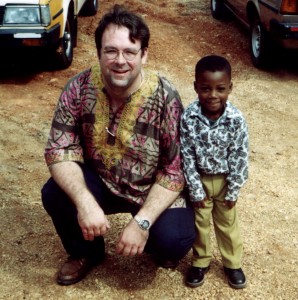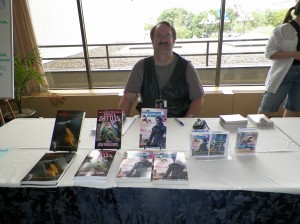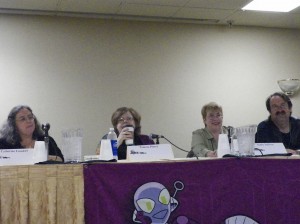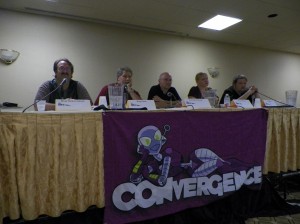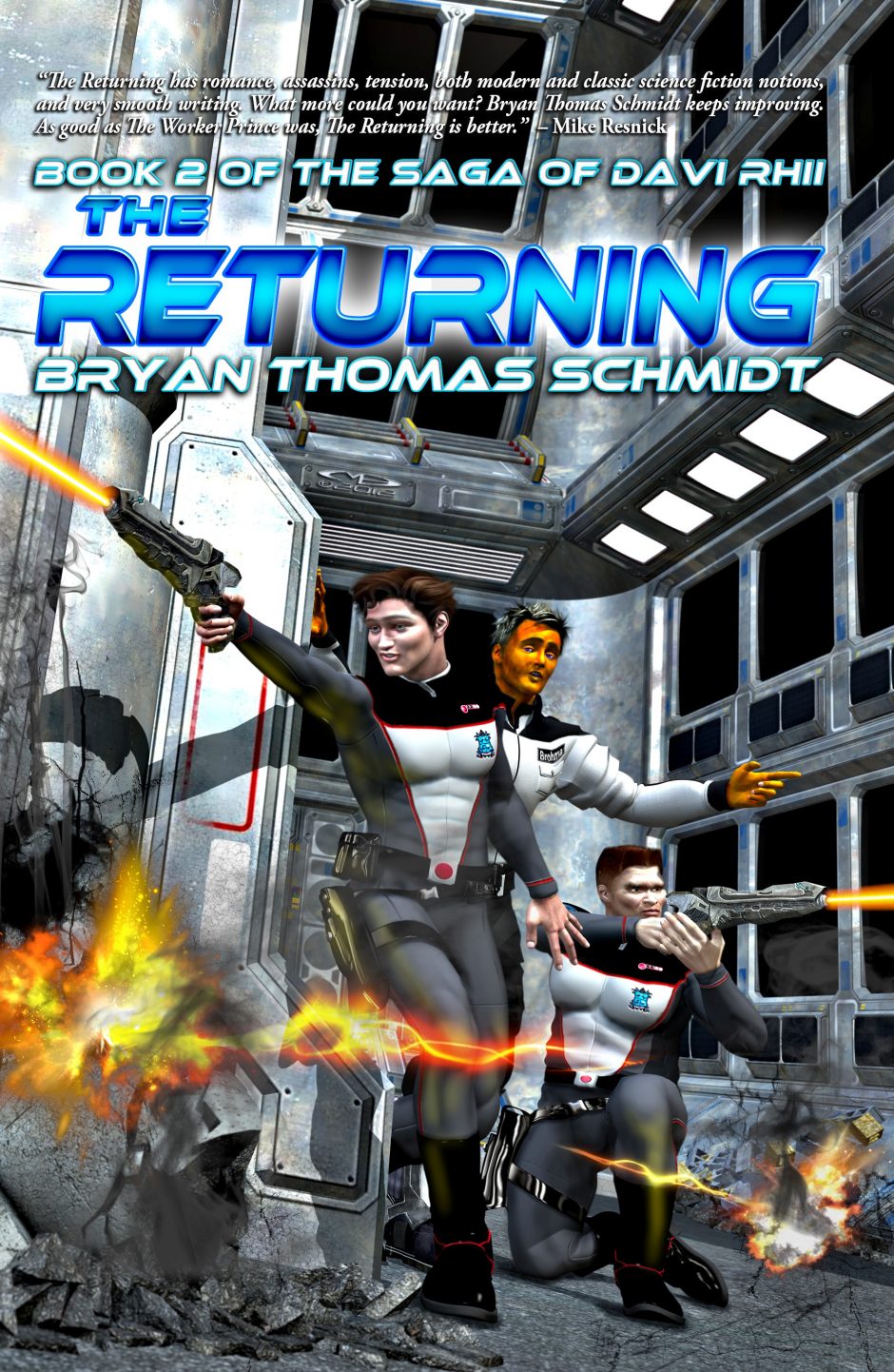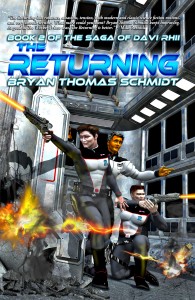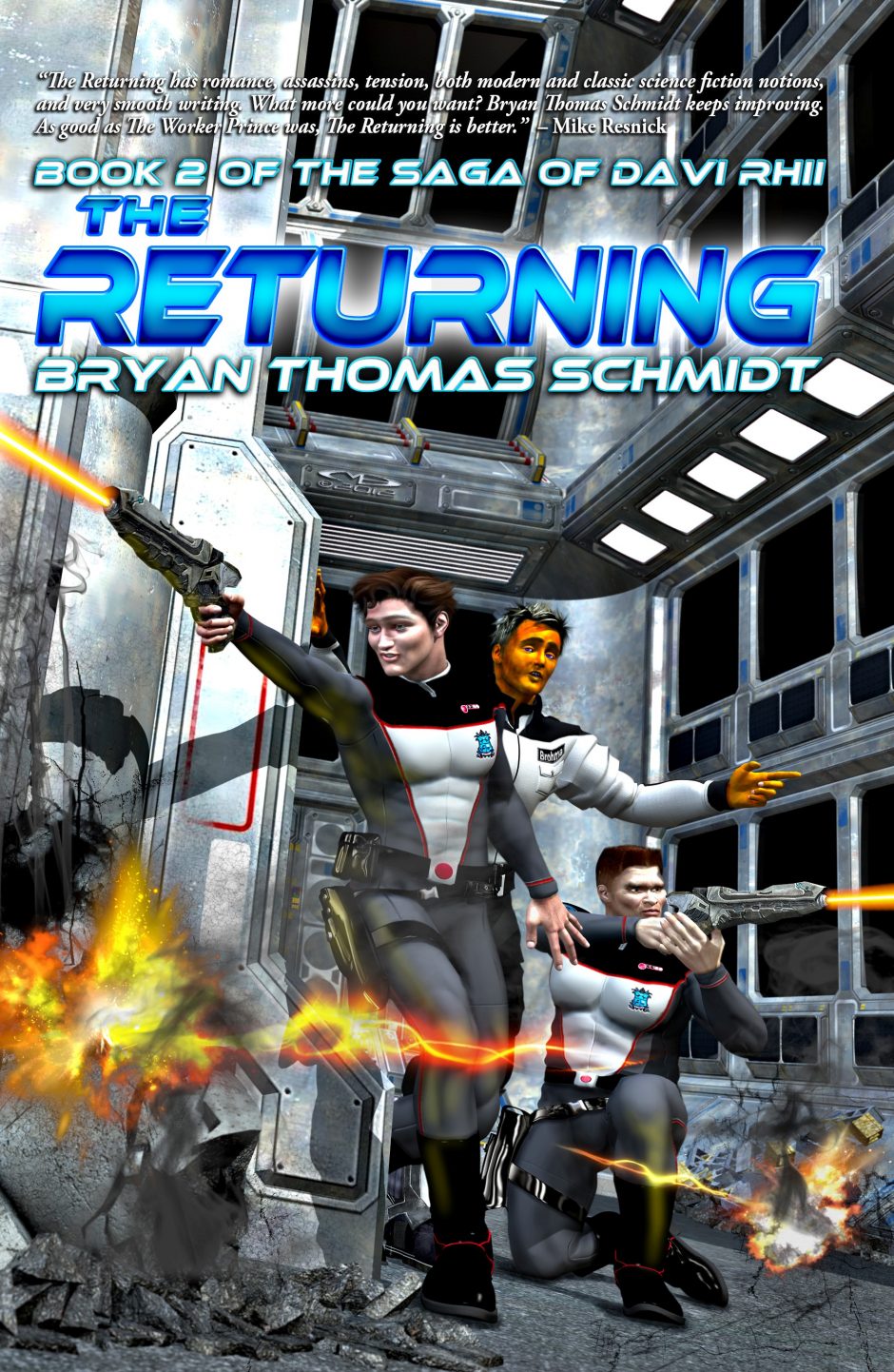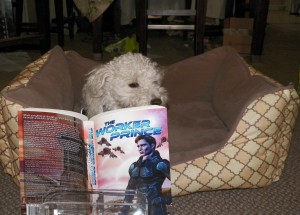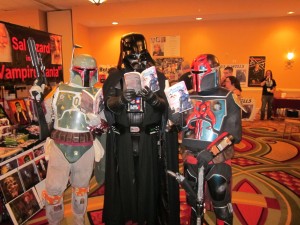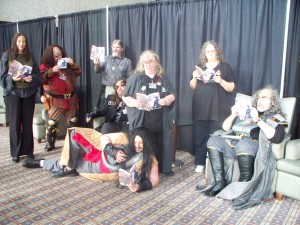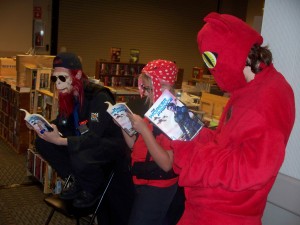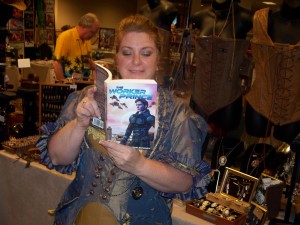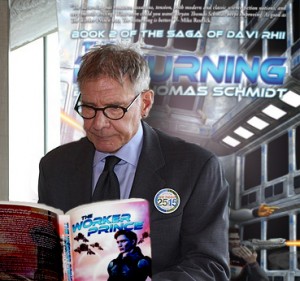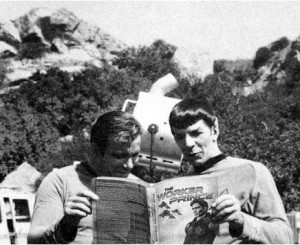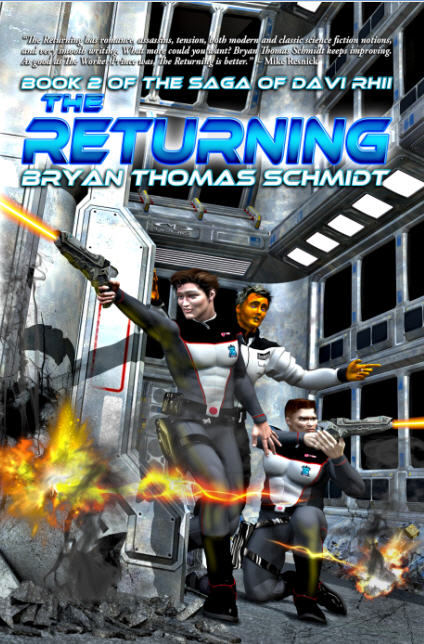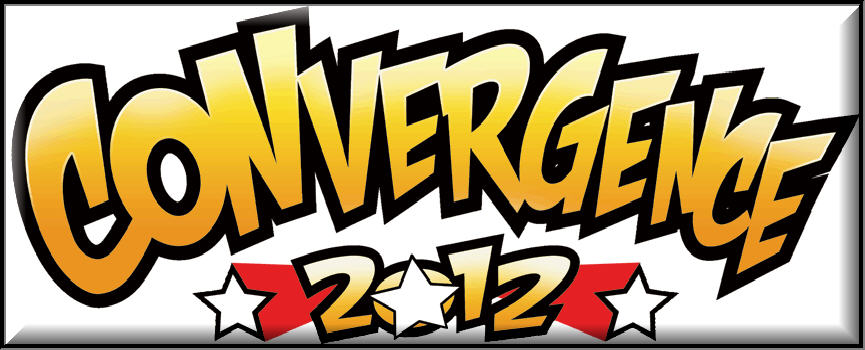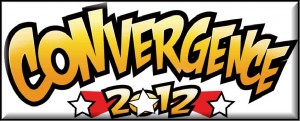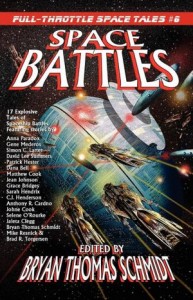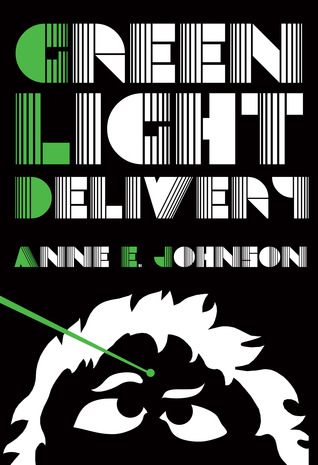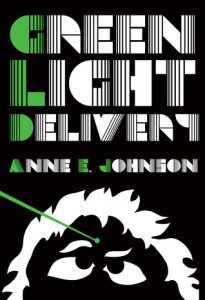 Okay, dichotomy, a big word. Yeah, yeah, I’m a writer and every once in while I have to prove it. So there. But seriously, passion and artists go hand in hand. Creative people are driven people and our passions drive us as much as any other force, often more. Passion is good. It provides energy, focus, and adrenaline. It gives you enthusiasm, drive and a compulsion to get what you have to say out there into the universe. But passion also has its downfalls, and in the increasingly digital age, which is also an increasingly public one, those downfalls can be pitfalls to successful writing careers. Readers love passion on the page. They love passion on your blog and in your attitude when they meet you or see you in interviews, etc. But readers come in all shapes and sizes, show your passion too much about the wrong subject, they can flee like leaves on a wind or seaweed on a wave. And they may not come back.
Okay, dichotomy, a big word. Yeah, yeah, I’m a writer and every once in while I have to prove it. So there. But seriously, passion and artists go hand in hand. Creative people are driven people and our passions drive us as much as any other force, often more. Passion is good. It provides energy, focus, and adrenaline. It gives you enthusiasm, drive and a compulsion to get what you have to say out there into the universe. But passion also has its downfalls, and in the increasingly digital age, which is also an increasingly public one, those downfalls can be pitfalls to successful writing careers. Readers love passion on the page. They love passion on your blog and in your attitude when they meet you or see you in interviews, etc. But readers come in all shapes and sizes, show your passion too much about the wrong subject, they can flee like leaves on a wind or seaweed on a wave. And they may not come back.
That’s why I think we all need a dichotomy of our passions, a divide between public and private that creates clear boundaries to help us channel our passions productively. It’s not censorship, it’s discretion and discernment. It’s knowing that in the public age of the World Wide Web, not everyone needs to know everything about your business, and conducting yourself appropriately in regards to expression your passions. There are a number of tricky subjects. Some are obvious: politics and religion, for example. Others are trickier: personal lives, kids, job talk, etc. Also important is the dichotomy of how you express yourself in public and in private. Some choose to just shoot off in whatever language they want. As smart as the advice those folks offer may be, some people will turn away from them for it. Maybe they don’t care. I personally do. It’s not that I think everyone will like me. But I don’t want to create barriers where none need to exist. And I think that chasing off potential readers is bad business. So I watch what I say and how I say it. Yes, sometimes I screw up, but it’s a journey and, like everyone, I’m learning as I go.
It’s a really good idea to sort out what you’re comfortable sharing and what you’re not. A lot may depending on audience and genre. For example, a writer of devotions or spiritual life books or even a Christian writer will likely share more about religion than someone whose work does not touch on those areas. There is a certain expectation from their work that takes them there. Still, how they express it, when and where is something to consider. A political writer, of course, will talk politics, and parenting writers about kids, etc. But for Average Jill and Average Joe, there’s a choice about these topics. Do you want to talk about things which may alienate or divide readers and lead to lots of heated discussion and potential conflict or do you prefer to focus on topic which will be more broadly acceptable and stimulate productive discourse? Do you want to share your private life, work life, family life, etc. with readers or do you prefer to keep it to yourself? How much is too much? And when do you start feeling you’ve said too much?
One challenge is that once you open the door, it can be hard to close it again. Readers who have read blog posts about your family or issues at work or health issues will want to know the latest and may not hesitate to ask. How do you then tell them: “Sorry. I said too much and realized I don’t want you to know all that so I’m not going to post it anymore” without hurting feelings or making people feel cut off or defriended? Because, like it or not, readers or fans who regularly read what you put out there are looking for a personal connection, some sort of bonding or feeling intimacy with the storyteller and voice which has touched their lives so much. Which is why you really need to know what you’re looking for, too, and what you’re offering and how far you’ll go in that pursuit. The lines of the dichotomy between public and personal are your decision and can be drawn any number of places, but once you draw them , they can be hard to change, so they must be drawn with care.
For me, I’ve learned the hard way that politics and religion must be handled with care. It’s hard because for much of my life my faith and politics have been so importantly intertwined with my work in foreign countries, in churches, etc. But as an artist they are not so deeply infused with my work. Do they influence them? Of course, absolutely. But I’m telling stories, not writing propaganda. While the themes and even morals I use in stories may speak to my worldview, that’s not the same as attempting to convert others to think the same way I do, and anything I post which expresses strong passion will likely be interpreted by many who read it as doing just that.
For example, one of my pet peeves are celebrities who talk down to the public as if they are more informed and smarter than we are. Yes, because I am a moviestar, my views should be yours. I strongly disagree. For one, having worked in Hollywood, those people don’t occupy the same every day world most of the rest of us do. They live with wealth, fame, power, and even entourages of people who take care of them, unlike that of any normal person. It’s not that they aren’t smart and talented. But that alone doesn’t give them the right to be political pundits and lobbyists who try and bend others to their will. So I tend to0 ignore what they say, knowing not only that their sense of normal and their values don’t match my own but that their sense of how Americans think is skewed. Plus, I’ve always been one to make up my mind for myself anyway.
Don’t get me wrong. Readers will invest themselves in caring about your opinions on all sorts of things. They will give incredible weight to your opinions, in fact, and the power of that can be intoxicating. But with such power comes responsibility. Don’t be like the American press, so stuck on its power that its ethics have disappeared as it twists stories and coverage to match its own politics, etc. If you value your readers and care about them, you should exercise your power responsibly and with great care. Allow them to be who they are and think for themselves. Be thankful that your books have affected them so and that your messages are being heard but don’t abuse the privilege.
In the end, finding the dichotomy of your passions is for you and the fans and readers both. You need to protect yourself and your privacy so you can feel safe. But you also want to maintain perspective about your level of influence and how you exercise it, too. At least, that’s what I believe makes for responsibly artistry and a more healthy writing life. How do you seek to balance personal and private in your interactions with the world outside? What goals and restrictions do you self-impose, if any and why? I’d love to hear about your dichotomy of personal and private as we each consider our own. For what it’s worth…
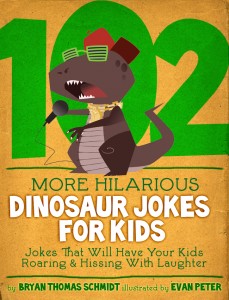 Bryan Thomas Schmidt is the author of the space opera novels The Worker Prince, a Barnes & Noble Book Clubs Year’s Best SF Releases of 2011 Honorable Mention, and The Returning, the collection The North Star Serial, Part 1, and several short stories featured in anthologies and magazines. He edited the anthology Space Battles: Full Throttle Space Tales #6 for Flying Pen Press, headlined by Mike Resnick. As a freelance editor, he’s edited a novels and nonfiction. He’s also the host of Science Fiction and Fantasy Writer’s Chat every Wednesday at 9 pm EST on Twitter under the hashtag #sffwrtcht. A frequent contributor to Adventures In SF Publishing, Grasping For The Wind and SFSignal, he can be found online as @BryanThomasS on Twitter or via his website. Bryan is an affiliate member of the SFWA.
Bryan Thomas Schmidt is the author of the space opera novels The Worker Prince, a Barnes & Noble Book Clubs Year’s Best SF Releases of 2011 Honorable Mention, and The Returning, the collection The North Star Serial, Part 1, and several short stories featured in anthologies and magazines. He edited the anthology Space Battles: Full Throttle Space Tales #6 for Flying Pen Press, headlined by Mike Resnick. As a freelance editor, he’s edited a novels and nonfiction. He’s also the host of Science Fiction and Fantasy Writer’s Chat every Wednesday at 9 pm EST on Twitter under the hashtag #sffwrtcht. A frequent contributor to Adventures In SF Publishing, Grasping For The Wind and SFSignal, he can be found online as @BryanThomasS on Twitter or via his website. Bryan is an affiliate member of the SFWA.







